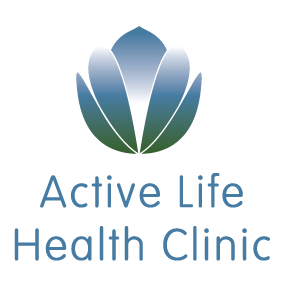 Needles. The word usually provokes stress for people. For those who’ve not received acupuncture, that is. My patients know that ahhhhhcupuncture (said like a sigh) gives them a chance to relax and feel better. In fact, some of my patients have called their acupuncture sessions, their “spa time.” I get used to seeing the blissed, semi-dopey faces post-treatment. As a result, my receptionists and I have learned not to ask challenging questions at the end of the treatments.
Needles. The word usually provokes stress for people. For those who’ve not received acupuncture, that is. My patients know that ahhhhhcupuncture (said like a sigh) gives them a chance to relax and feel better. In fact, some of my patients have called their acupuncture sessions, their “spa time.” I get used to seeing the blissed, semi-dopey faces post-treatment. As a result, my receptionists and I have learned not to ask challenging questions at the end of the treatments.
Why do people feel so good after acupuncture? One of the well-documented effects of acupuncture treatment is the release of endorphins–feel good hormones. The word endorphin can be understood by breaking it down. “Endo” means substances your body can produce itself. The “orphins” part of the word refers to morphine, an opioid chemical that relieves pain and suffering. The good thing about endorphins is that they are naturally produced by your own body, so don’t have the negative side effects of an externally delivered morphine, while still benefitting from the feelings of well-being.
Another biochemical that your body releases during and after acupuncture is called serotonin. This substance is found in your central nervous system (CNS) and gut. Serotonin is important in the regulation of mood. Pharmaceutical antidepressants such as Paxil, Prozac, Zoloft, Celexa, Cipralex, Effexor, Cymbalta, and Marplan–the list goes on and on and on!–also work on keeping serotonin circulating. Serotonin is important in supporting good sleep, memory, and learning. Healthy digestive activity also relies on serotonin. Have you ever had butterflies in your stomach, knots in your stomach, nausea, or diarrhea when you are nervous or stressed out? Then you know why the gut is sometimes called the “Second Brain.”
The first question I get with regard to acupuncture is almost invariably, “Is it painful?” My answer is, “No.” For more about this, check out my articles, “But I’m afraid” and “Planning for the Worst.”
There are many points on your body that can help address stress. As a Dr. TCM, I would ask you questions and assess you before choosing from some of these (or other) points for relieving stress:
– DU20 (bai hui): I call this the “lifting point” as it helps to lift your energy at the same time as it calms your mind.
– Yintang: I nicknamed this one the “aren’t you going to do that point” point as after receiving this point once, if I start to leave the room without doing that point during subsequent sessions, patients often ask me that
– Kidney points (various points on your legs and torso): On top of your kidneys sit the adrenals and these glands are busy little bees, often overworked organs, so supporting the Kidney points supports the adrenals. Kidney imbalance signs might include fatigue, anxiety/fear, low back pain, weak or achy joints, feeling unable to take a deep breath, and hormonal imbalance, including low libido.
– Spleen points (various points on your legs and torso): In TCM, the Spleen is associated with worry and over-thinking and also affects your digestion (the TCM Spleen includes the physical organ, the pancreas). Spleen weakness signs include foggy-headedness, fatigue and feeling weighted down, bloating, diarrhea, and gas.
– Liver points (various points on your legs and torso): The TCM Liver is like a military general, liking order and routine. Modern day life means that we don’t rest with sunset and rise with sunrise or always eat regular meals regularly, chewing our food well. Sometimes grabbing a glass of wine or bottle of beer might seem like a good way to de-stress, but these affect your liver. In addition, if you notice that you are feeling irritable, frustrated, or angry, you may need to support your Liver.
– Heart points (various points on your arms and torso): The TCM Heart is important to pump your blood to keep you alive. It is also your “House of emotions.” The emotion of the Heart is joy, but all extremes of emotion affect the Heart. Since the Heart is also known as the “King” organ of TCM–without it, you would quickly die–taking care of this system is vital.
– Lung points (various points on your arms and torso): The TCM Lungs, just as your real organ lungs, are clearly important for breathing. But the TCM Lungs also address sadness and grief. If your stress is impacted by these emotions, opening the Lung channels can allow a wonderful healing release. Other signs up Lung troubles include problems with breathing (asthma, shortness of breath, etc), sensations of tightness in chest, skin issues, and immune system imbalances like getting sick often or autoimmune disorders.
TCM also has stress-management options that do not involve needles for anyone that does not want to have acupuncture.
But think of this. One of my patients told me that when he gets up from his acupuncture treatments, he is the most relaxed he has ever been…in his life. Wow!
